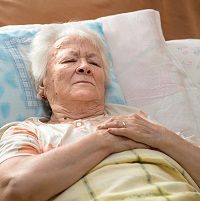Article
Dangerous Liaisons: Elder Abuse and Metabolic Syndromes
Author(s):
Around 10% of elders experience some form of elder abuse (physical, sexual or emotional abuse; neglect, exploitation, or abandonment), and elders who are abused appear to have a high level of comorbidity. Evidence suggests that patients who have experienced elder abuse are at higher risk of cardiovascular-related mortality.

Elders are vulnerable, some more than others. Around 10% of elders experience some form of elder abuse (physical, sexual or emotional abuse; neglect, exploitation or abandonment), and elders who are abused appear to have a high level of comorbidity. Current evidence about elder abuse may is derived almost entirely from survey research. That evidence suggests that patients who have experienced elder abuse are at higher risk of cardiovascular-related mortality. Better understanding of elder abuse’s effects on overall health is needed, and sources other than surveys would be optimal.
Researchers at Rush University Medical Center in Chicago, IL have published a first-of-its-kind study looking at the relationship between metabolic syndrome and elder abuse. Their findings, published online in the journal Gerontology, indicate that elder abuse and metabolic syndrome may be associated.
The researchers used data from The Chicago Health and Aging Project (CHAP) cohort. CHAP was a population-based study (n = 4,586) that enrolled a representative community population of older adults. The current study identified 676 elders from the overall population for whom some form of elder abuse was on file at a social services agency.
They found that elder abuse victims were more likely to have metabolic syndromes meeting World Health Organization (WHO; 22.4%), American Heart Association (AHA; 50.7%) and International Diabetes Federation (IDF; 47.7%) criteria than others.
Elders subjected to abuse were more than twice as likely as others to meet any definition of metabolic syndrome. The younger the abused participant, the more likely he or she was to have metabolic syndrome. Women and elders with the highest BMIs were also at elevated risk.
The researchers suggest that the elder abuse-metabolic syndrome association may be moderated by sociodemographic characteristics. Their research didn’t reveal health-related or psychosocial factors.
Other studies have reported metabolic consequences associated with child abuse and domestic violence. These researchers note that elder abuse was probably under-reported in their sample. Further research is needed to identify potential causal mechanisms and temporal relations between specific subtypes of elder abuse and metabolic syndromes.




